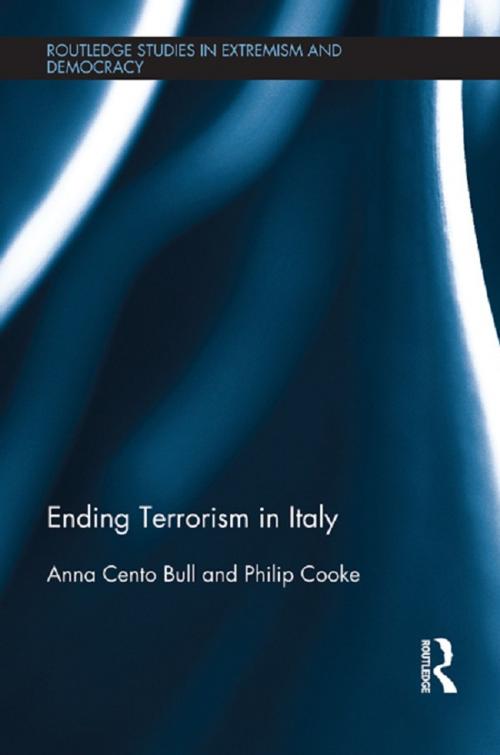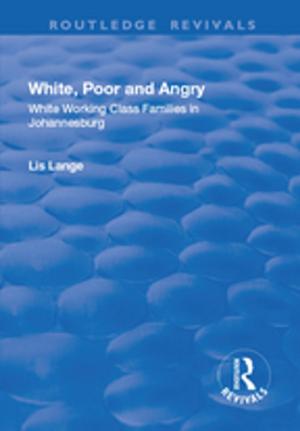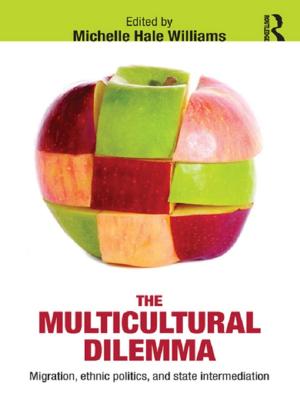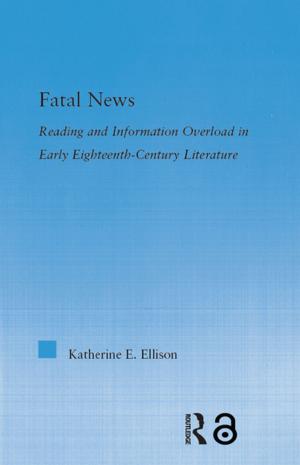Ending Terrorism in Italy
Nonfiction, Social & Cultural Studies, Political Science, International, Foreign Legal Systems, Government, Democracy| Author: | Anna Cento Bull, Philip Cooke | ISBN: | 9781135040796 |
| Publisher: | Taylor and Francis | Publication: | June 7, 2013 |
| Imprint: | Routledge | Language: | English |
| Author: | Anna Cento Bull, Philip Cooke |
| ISBN: | 9781135040796 |
| Publisher: | Taylor and Francis |
| Publication: | June 7, 2013 |
| Imprint: | Routledge |
| Language: | English |
Ending Terrorism in Italy analyses processes of disengagement from terrorism, as well as the connected issues of reconciliation, truth and justice. It examines in a critical and original way how terrorism came to an end in Italy (Part I), and the legacy it has left behind (Part II). The book interrogates a wide array of published memoirs and a considerable number of new face-to-face interviews with both former terrorists and first and second generation victims
In the last two decades, and especially in recent years, former extreme-right terrorists in Italy have started to talk about their past involvement in terrorist violence, including, for the first time, acts of violence which have for decades been considered taboo, that is to say, bomb attacks against innocent civilians. These narratives add to the perspectives offered by members of left-wing terrorist groups, such as the Red Brigades and Prima Linea. Surprisingly, these narratives have not been systematically examined, yet they form a unique and extremely rich source of first-hand testimony, providing invaluable insights into processes of youth radicalization and de-radicalization, the social re-integration of ex-terrorists, as well as personal and collective healing.
Even less attention has been paid to the victims’ narratives or stories. Indeed, the views and activities of the victims and their associations have been seriously neglected in the scholarly literature on terrorism, not just in Italy, but elsewhere in Europe. The book therefore examines the perspectives of the victims and relatives of victims of terrorism, who over the years have formed dedicated associations and campaigned relentlessly to obtain justice through the courts, with little or no support from the state and, especially in the case of the bombing massacres, with increasing awareness that the state played a role in thwarting the course of justice.
Ending Terrorism in Italy will be of interest to historians, social scientists and policy makers as well as students of political violence and post-conflict resolution.
.
Ending Terrorism in Italy analyses processes of disengagement from terrorism, as well as the connected issues of reconciliation, truth and justice. It examines in a critical and original way how terrorism came to an end in Italy (Part I), and the legacy it has left behind (Part II). The book interrogates a wide array of published memoirs and a considerable number of new face-to-face interviews with both former terrorists and first and second generation victims
In the last two decades, and especially in recent years, former extreme-right terrorists in Italy have started to talk about their past involvement in terrorist violence, including, for the first time, acts of violence which have for decades been considered taboo, that is to say, bomb attacks against innocent civilians. These narratives add to the perspectives offered by members of left-wing terrorist groups, such as the Red Brigades and Prima Linea. Surprisingly, these narratives have not been systematically examined, yet they form a unique and extremely rich source of first-hand testimony, providing invaluable insights into processes of youth radicalization and de-radicalization, the social re-integration of ex-terrorists, as well as personal and collective healing.
Even less attention has been paid to the victims’ narratives or stories. Indeed, the views and activities of the victims and their associations have been seriously neglected in the scholarly literature on terrorism, not just in Italy, but elsewhere in Europe. The book therefore examines the perspectives of the victims and relatives of victims of terrorism, who over the years have formed dedicated associations and campaigned relentlessly to obtain justice through the courts, with little or no support from the state and, especially in the case of the bombing massacres, with increasing awareness that the state played a role in thwarting the course of justice.
Ending Terrorism in Italy will be of interest to historians, social scientists and policy makers as well as students of political violence and post-conflict resolution.
.















